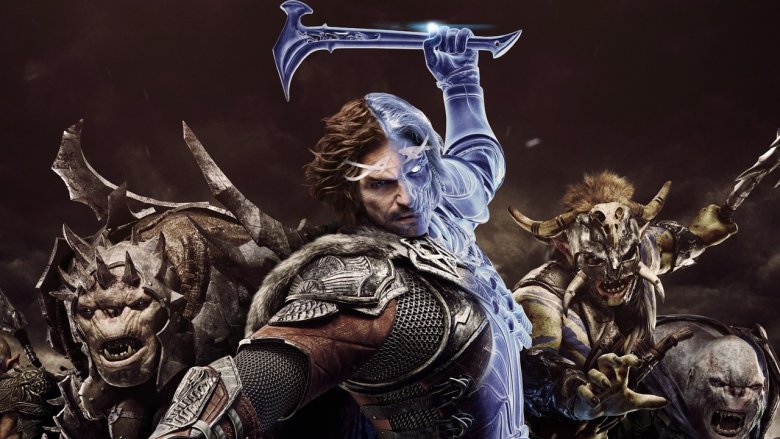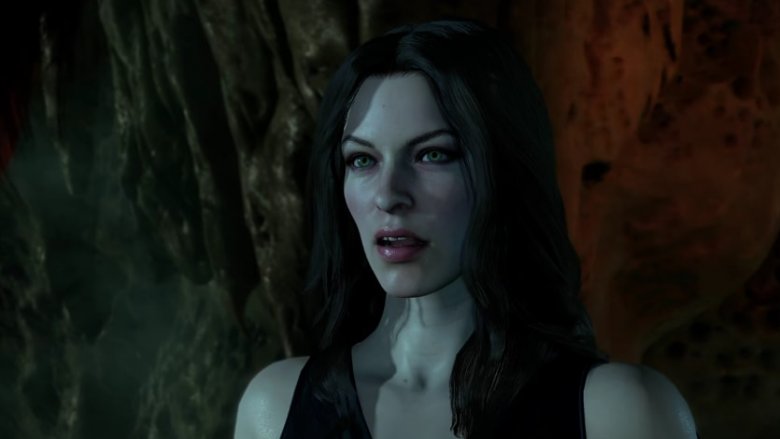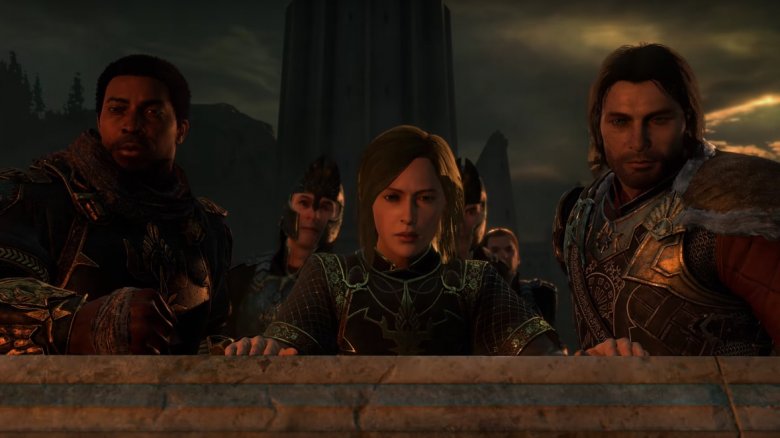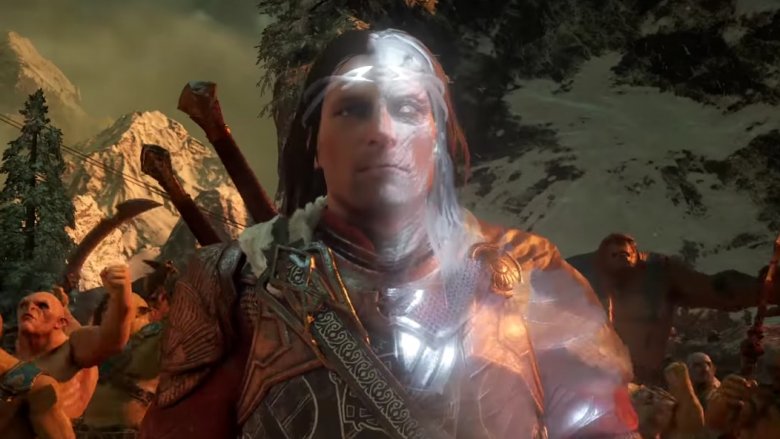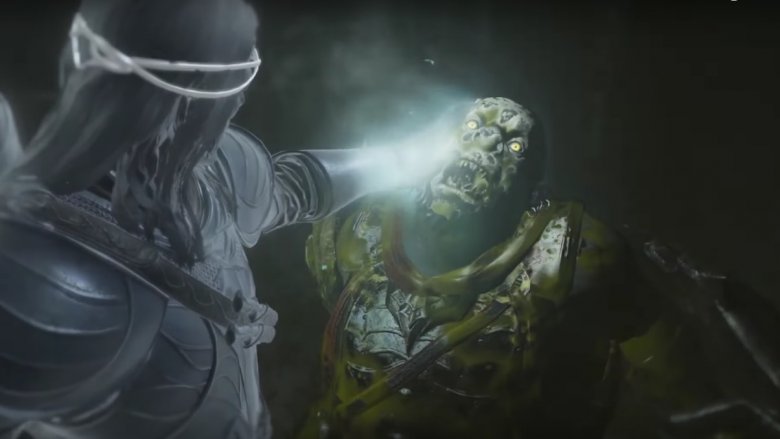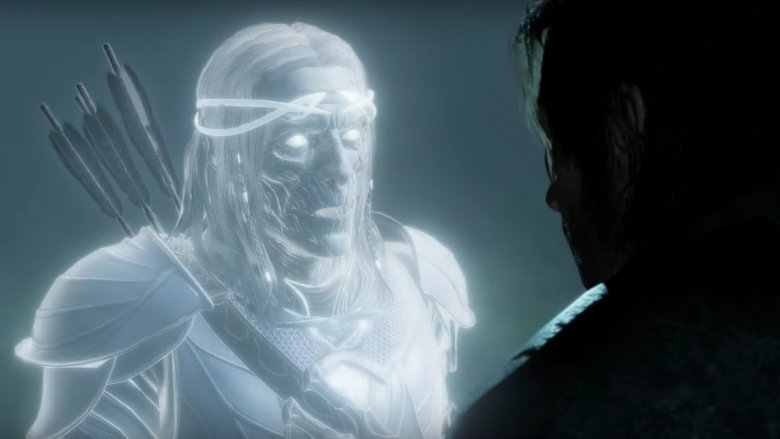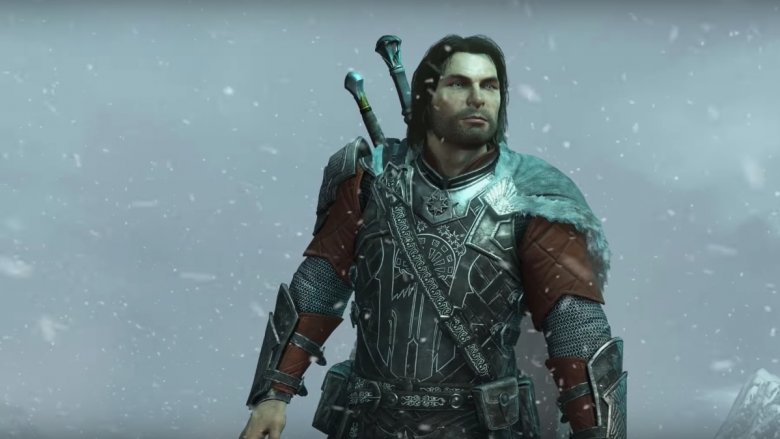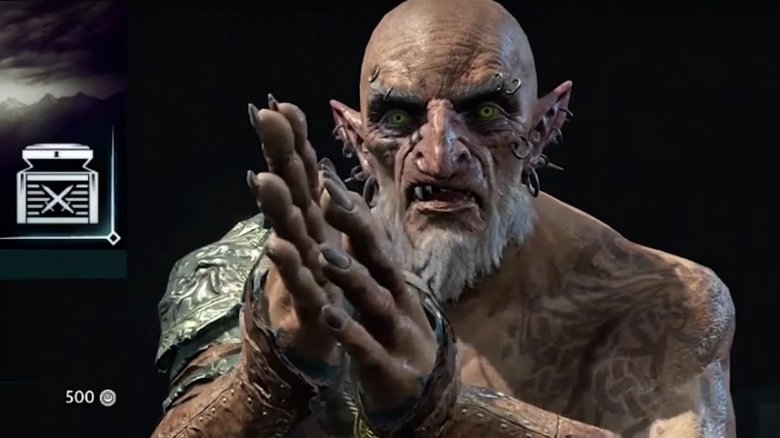Everything Wrong With Middle-Earth: Shadow Of War
Monolith Productions' Middle-earth: Shadow of War has rightfully been praised by critics for taking everything great about its predecessor—the similarly-titled and Game of the Year-winning Middle-earth: Shadow of Mordor—and making it better. Nevertheless, some fans are unhappy with the final product, even though it objectively stands out as a very good game. So what gives?
Very few games are perfect, and Middle-earth: Shadow of War is no different. So while we love the game, let's take a look at everything wrong with it.
Its beauty is only skin deep
While Middle-earth: Shadow of War's beautifully realized world vastly improves upon Middle-earth: Shadow of Mordor's two not-dissimilar locations, the variation throughout the sequel's five zones doesn't extend beyond aesthetics.
When you peel back the differences in appearance, it's easy to see that each location functions exactly like any other, is populated with the exact same creatures, the exact same enemies, and—more or less—the exact same of everything. While this is a minor complaint, to be sure, it would've been nice to see Shadow of War implement some sort of environmental-based system playing off each location's distinct visual vibe in order to spice up the gameplay and give each location an even more unique feel.
Shadow of War's more noticeable blemishes stem from graphical issues. Even though the game renders in an ultra-crisp 4K resolution on capable hardware, some character models look a little rough around the edges. (Literally.) Frequent texture pop-in can also pull you out of the experience—especially when, as IGN's Dan Stapleton noticed, enemies appear with completely blank faces that take a few moments to properly pop into place. While we're not looking at Assassin's Creed Unity levels of facial reconstruction here, running through what should-be beautiful locations with glaring texture pop-in is far from ideal, and—though Mordor is full of frightful oddities—encountering faceless Uruk-hai is simply terrifying...and not in a good way.
The supporting characters have no depth
Let's not harbor any illusions about what Middle-earth: Shadow of War really is. At its best, the game is about slaying Uruk-hai and other evil Tolkien bad guys in brutal fashion—and it does that very well. Unfortunately, the game's cast of supporting characters leaves much to be desired; a sad reality made even worse by the fact that the game takes place within a fictional universe brimming with memorable characters like Sean Bean's Boromir, Ian McKellen's Gandalf, and John Rhys-Davies' Gimli. When compared to Peter Jackson's movies (not to mention the classic Tolkien source material), Shadow of War's characters are forgettable.
Not only are the characters lacking any measure of depth, their storylines are incredibly boring. Worse yet, they don't make any sense. Without getting into spoiler territory, neither the game nor its characters provide any legitimate explanation for their actions, leaving us with an incredibly fast and loose means of progressing from one action-packed orc-slaying mission to the next.
With gameplay mechanics and systems as tight as Shadow of War's, it would be nice to see the series provide some truly emotional "I tried to take the ring from him" moments.
Fortress battles are great, but there's no real strategy
One of Middle-earth: Shadow of War's most exciting new additions is the implementation of fortresses, which must be conquered via large-scale invasions in which some 100 or so of your mind-controlled orcs wage an epic siege against a defending force—complete with mounted cavalry, siege equipment, and wall breaches, all culminating in a challenging battle with the fortress's overlord. All things considered, it's the best way to feel like Legolas racking up his kill count at Helm's Deep.
Nevertheless, there's a distinct lack of strategy in both the invasion and defense of a fortress. As noted by IGN, adding some basic strategy elements—such as being able to choose troop placement or place traps—would've gone a long way toward making these large-scale battles even more noteworthy. Even defensive upgrades like caged drakes and poison spouts are pre-placed, making the entire ordeal feel all too easy. As it stands, these battles are good fun and serve as one of the game's highlights, but throwing in an element of strategy could've made them truly great.
It's easy to get lost in it all…
Middle-earth: Shadow of War is packed full of content; something certainly not worthy of complaint. That said, there's so much to do and so much going on at any given time, you'd be forgiven for feeling like the game often doesn't know what to do with itself...making it easy to get lost in it all.
The game has a deep and rightful adoration for its own systems (especially The Nemesis System), but they can feel overwhelming at times. It's like Middle-earth: Shadow of Mordor, times 100. There are orc feuds to intervene on, captains to kill, captains to brainwash, loots to grab, optional missions to upgrade said loot, better loots to grab that renders your favorite piece of loot worthless, elven memories to relive, fortresses to invade, fortresses to defend, random humans to aid, death threats to issue, skills to unlock, sub-skills to unlock and—lest we forget—fast-moving primary story objectives to complete, which themselves often border on the verge of being entirely nonsensical.
It's enough to make your head spin, and sometimes you can't help but wonder: why even bother orienting yourself at all? It's plenty of fun to simply run around, lop off heads, and tick boxes...even if you're not sure exactly why you're doing it.
...But it really isn't that different
Even though it's easy to get lost in Middle-earth: Shadow of War's deeper systems, plethora of extraneous content and more diverse map, it still feels familiar—perhaps a bit too familiar. (Take a look at the screenshot above. Can you really tell which title it's from?)
To be fair, Shadow of War does—for all intents and purposes—take everything Shadow of Mordor did and make it better while adding in plenty of next-level content. For that, the game should be commended. Nevertheless, the same issues that snuck into Shadow of Mordor still creep up behind you three years later in Shadow of War.
Aside from perhaps our dual protagonists Talion and Celebrimbor, character models hardly look better than they did in 2014's entry—something immediately evident when Talion shares the screen with side characters—and their stories certainly haven't pushed the boundaries of Tolkien storytelling. The impossibly graceful Talion still gets stuck on the odd ledge, despite the addition of a double-jump feature. Worst, however, is the fact that it occasionally feels like we're playing an annualized addition to the series, as opposed to a fully-fledged sequel. As Chris Carter wrote for Destructoid: "I've heard the phrases 'Palantír,' 'Bright Lord,' and 'dominate' to last me two lifetimes," and there's a solid chance you'll feel the same.
It ends up feeling like a lot of the same
Once again, it's important to state that Middle-earth: Shadow of War successfully takes what Middle-earth: Shadow of Mordor did and makes it better. In that way, it's undeniably a very good game. Still, it doesn't take very long before the monotony of routine sets in—especially if you're a completist and/or played its predecessor.
After putting in a few play sessions, you might find yourself asking just how many Uruks you've branded, how many elven memories you've completed, how many times you've unlocked upgrades for your weapons—only to have them rendered obsolete—or just how many times you've died. In fact, if you're even remotely competent at the game, there's a good chance the answer to the last question is countable on one hand.
Shadow of War falls victim to same flaws as other open-world games—specifically, that you do the same things over and over. In this case, you gather intel, provoke the war chief by targeting his supplicants, attack the fortress, dethrone the overlord, stick your favorite in his place, rinse, and repeat as necessary. That's not to say that this process isn't fun; still, that familiar feeling of diminishing returns starts to set in all too early, just as it did in Shadow of Mordor...only this time on a grander scale.
The loot boxes are completely pointless
It probably goes without saying, but loot boxes are (almost) always bad. Only in rare cases (like Overwatch) do they not drive negative criticism. Sadly, Middle-earth: Shadow of War is not one of those cases.
What's most egregious about Shadow of War's loot boxes isn't that they barricade the best stuff behind a paywall, or force you to grind for days just to grab something you could drop $5 on. That's actually not the case at all. Instead, Shadow of War's loot boxes are just pointless—to the point where their very existence only serves as a means of paying not to play the already-full-priced game. Broadly speaking, the point of Shadow of War is to kill Uruks for loot, with each decapitated head serving as a metaphorical spin of the roulette wheel. Buying loot boxes simply means you don't need to don't need to decapitate those heads. (Even though you will anyway.)
Just by simply playing the game, you'll receive more than enough swag and in-game currency to sate your appetite for loot...so why do they even exist in the first place? GQ asked that very question to creative director Michael de Plater, who explained that "what every big-budget developer wants right now is to make a game that people can play forever. The open-and-shut, 10- to 12-hour experience is dwindling in popularity. Loot boxes...[are] the solution that let developers make those kinds of games." (Or it's just because publishers want you to spend more money.)
Shelob is a sexy lady?
One particularly big beef diehard Tolkien fans have with Middle-earth: Shadow of War is the fact that the game designers made Shelob—the great spider who attacks Frodo in either The Two Towers (book) or The Return of the King (film)—a sexy lady, as opposed to...you know...a giant, disgusting arachnid.
Knowing that this might tick some fans off, the developers nevertheless had a reason for the change. "We really wanted to explore this character," Monolith's lead narrative designer Tony Elias told GameSpot. "If you look back at Two Towers for example, I think one of the first descriptions of Shelob is an evil thing in spider form. It's an interesting way to describe this creature, a spider form...and so it feels like it's chosen [that form] in a way...Sauron has his war form and he has his fear form, and Shelob, you could think of the spider as Shelob's war form, and her fear form she uses when she counsels Talion. She can read the web of fate. We see her as this kind of dark oracle, a sort of dark Galadriel who can see the future and guide his path."
From a game-design perspective, Elias and crew thought that making Shelob assume a humanoid form made Shadow of War better. "We thought there was a lot to explore there, and we could do that with a humanoid representation," Elias said. "It allowed us to do a lot more with the story, it allowed us to use her in a more meaningful way in the story."
It's too fast and loose with Tolkien lore
Shelob assuming the humanoid form of an attractive woman serves to illustrate a larger problem with Middle-earth: Shadow of War—the game isn't actually canon. But why not?
"We're really genuine in trying to do the best job we can," Monolith's VP of creative, Michael de Plater told GameSpot, in response to the story breaking some of Tolkien's rules. "Because we do [love the lore], to some extent ... it's not canon. We've changed things on the timeline. It is another story that exists alongside the books and the movies. And the movies also have events that are different from the books. So it's really striking that balance, like any good adaptation has to do, of telling your own story but really trying to capture what's strongest about the source material as well."
Plater knows full well that, no matter what, you can't please everyone. "It's really hard because I genuinely can't imagine anything we could come up with—even if you set it as your goal—[that would] make everybody happy," he explained. "I think it would be impossible. ... We just have to commit to making the best game we can within the context of our interpretation of the lore. It's more important that a lot of people really love it, [rather] than [ensuring] that everybody thinks it's okay."

